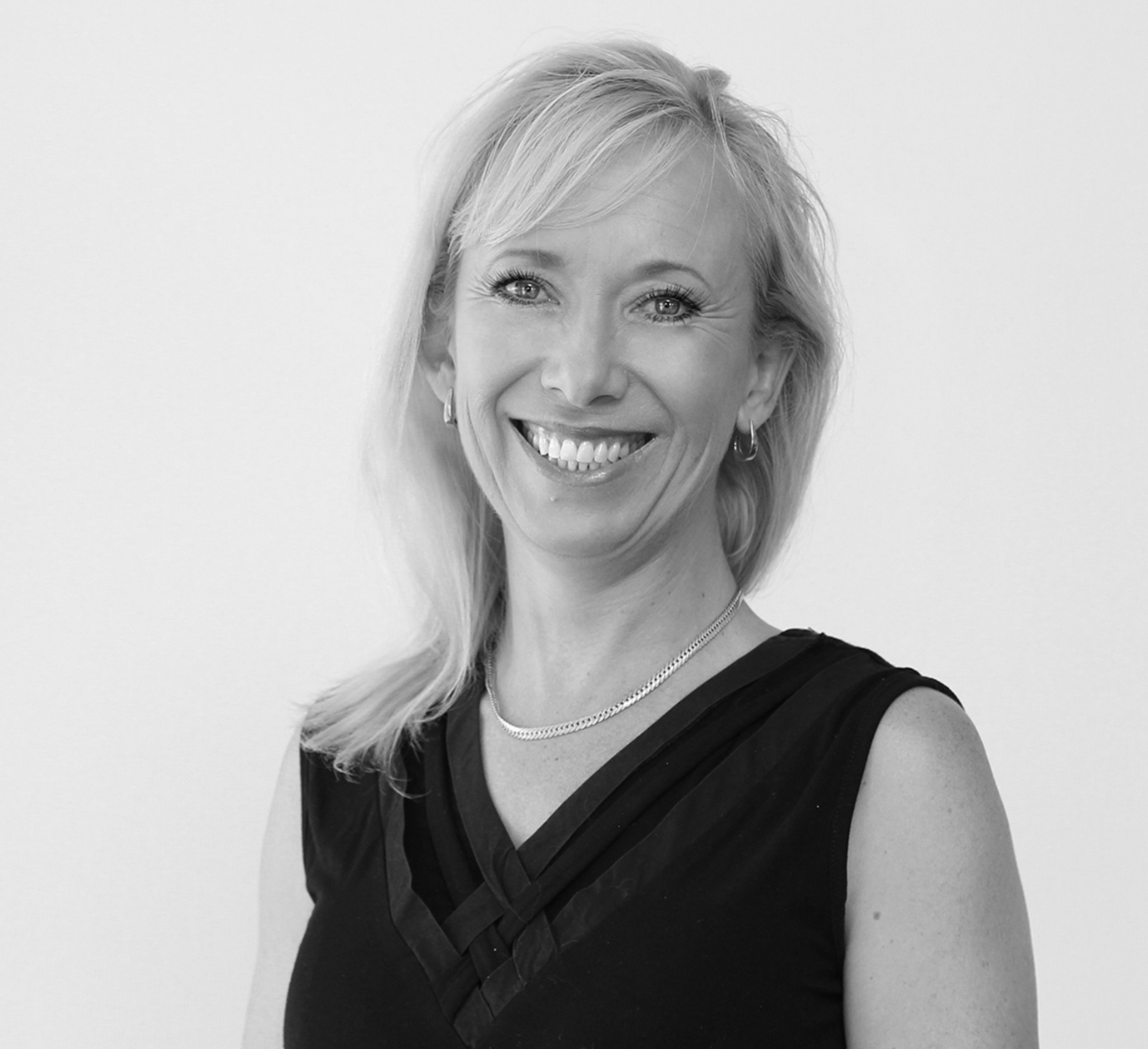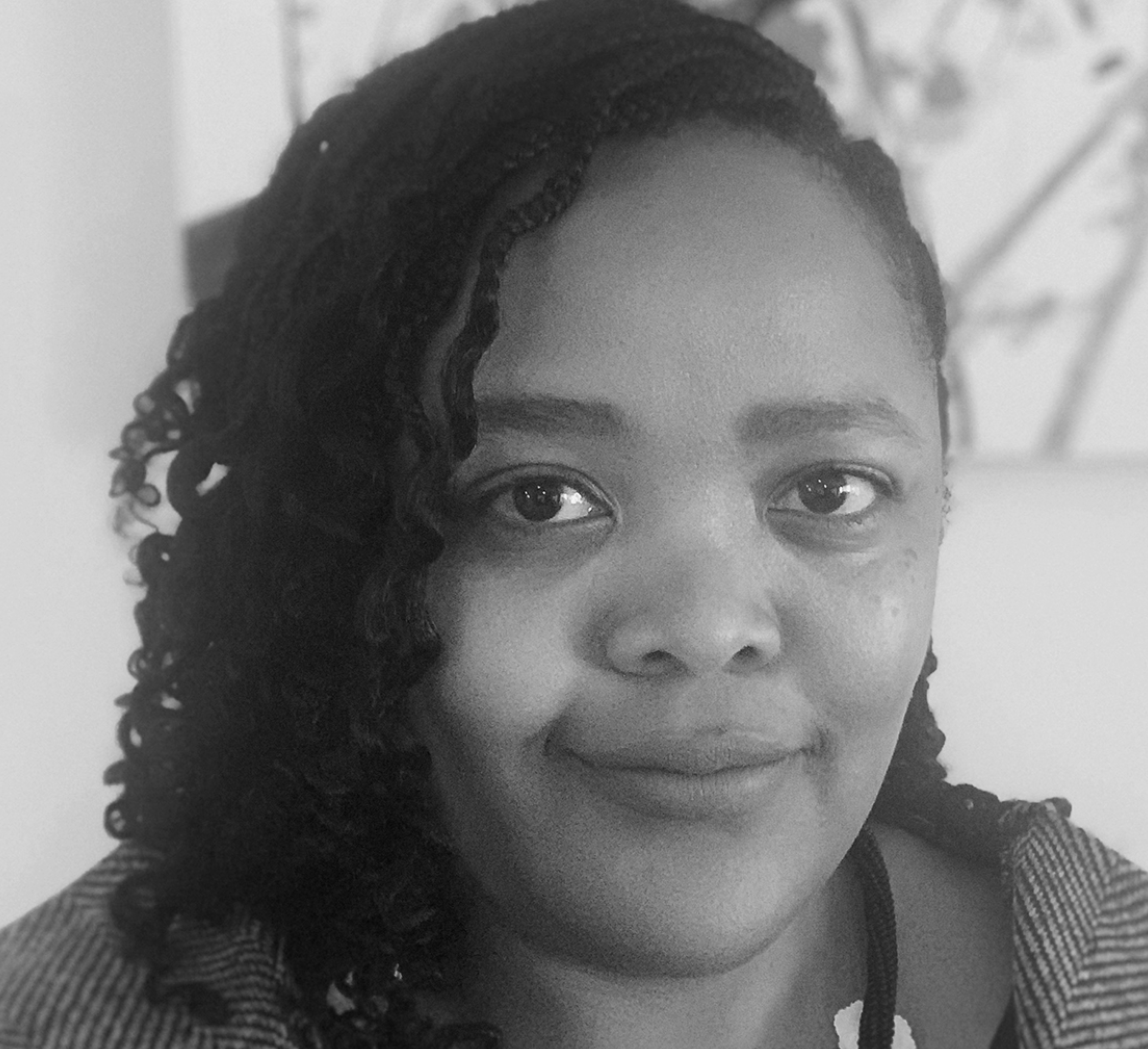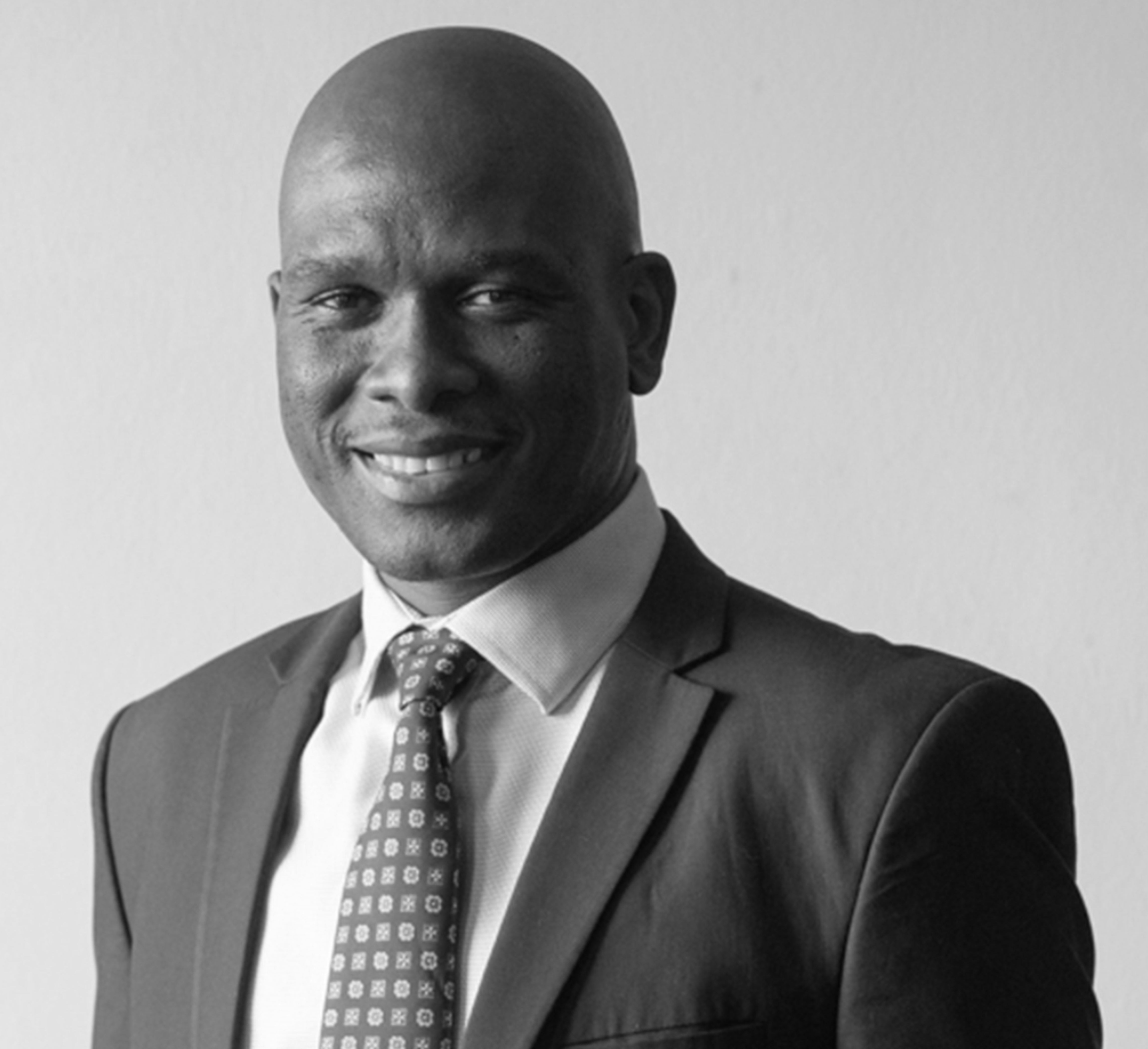68: Maryna Jonker
Founder and Chief Executive Officer – Prism Accounting
‘The majority of my career was in accounting but once I started getting involved in the tax side again, I just thought this is really where my passion lies.’

CIARAN RYAN: This is CFO Talks and today I’m talking to Maryna Jonker, who is the founder and chief executive of Prism Accounting. She’s got an MCom degree in taxation from the University of Pretoria. Previously, she worked with McDonald’s when it first entered the South African market and has held various other positions in the corporate world. She joins us today to share some of her insights into these taxing times, if you’ll excuse the pun, when businesses are struggling to stay afloat. First of all, welcome Maryna, how are you?
MARYNA JONKER: I’m good, thanks, and you, Ciaran?
CIARAN RYAN: It’s freezing, it really is a one of these cold miserable days just when we thought spring was returning in Gauteng but not just yet. I don’t know what your experience is where you are?
MARYNA JONKER: I’m in Pretoria and normally we are a little bit warmer than Johannesburg, but I must admit, today is pretty chilly.
CIARAN RYAN: Ja, okay, first of all, from your experience in this time of lockdown, we’re four months into the lockdown, are businesses in terrible shape because of the lockdown, what’s your experience with your clients, are they managing to somehow survive?
MARYNA JONKER: Ciaran, yes, as you mentioned when we were off air, there was that wonderful restaurant that closed down Casalinga. it really saddened me. Casalinga, for instance, is a landmark on Beyer’s Naude Drive, we held my Mom’s seventieth birthday there and to see businesses closing down is heartbreaking. The SMME sector in particular has come under severe strain and, as you know, they estimate there are 2.5 million SMMEs and they are the heartbeat of our economy. TransUnion Africa recently released research on the impact of the Covid-19 pandemic on small businesses in South Africa and nine out of ten small businesses are struggling or have temporarily closed. It was reported that less than 1% of them are thriving, 96% reported a decrease in revenue, cash flows especially were hit hard, 32% said they would be able to operate for less than three months at this current rate, 50% reported extreme concerns about meeting their payment obligations, 59% said they had to cut staff salaries, 44% said they will be unable to pay rent and 33% said they will have to start downscaling monthly services such as telecommunications and insurance. Government funding, the grants to the business community and private individuals has prevented mass liquidations so far.
CIARAN RYAN: Maryna, if I could just ask you to move a little bit closer to the microphone there, you are drifting in and out a little bit.
MARYNA JONKER: Okay, will do.
CIARAN RYAN: So the picture is pretty bad, I think it was eight or nine South Africans reporting some contraction of income and, I guess, it’s the same with businesses. You talked about Casalinga, this restaurant, which we both know, which is a wonderful place. You said you were, was it your mom, you had a celebration there recently, and that landmark restaurant is just closed down and it’s just sort of symptomatic of what is happening across the economy, right?
MARYNA JONKER: Ja, it’s very sad indeed.
Tax practitioners are problem solvers
CIARAN RYAN: Okay, just talk now for a bit about…you’ve got a very strong background in tax and you’ve got a Master of Commerce degree, an MCom degree from the University of Pretoria. What is it that you love about tax? Tell us, first of all, what is that?
MARYNA JONKER: [Laughing] Ja, what do I love about tax? That’s an interesting question. When you read it and it’s so intriguing in terms of the way you read it, it’s cut and dry, and I think it’s because I am a black or white person and I enjoy tax so much it’s because it’s black or white. It’s
just interesting in terms of the different legislations across the world, like the UK tax is extremely complex compared to ours. I’ve got a client in the UK and when I start looking at something on their website, it’s like our SARS, if I go onto their website and I start clicking on something, you drill down and you drill down and it’s just more and more and more. The majority of my career was in accounting but once I started getting involved in the tax side again, I just thought this is really where my passion lies.
CIARAN RYAN: Right, I guess tax practitioners really are problem solvers. I mean, tax is such a grudge thing for most people that if you are able to come in with solutions and you’re having to, I suppose, you’re like the doctor, I’ve got good news for you and I’ve got bad news for you. The bad news is you’ve got to pay, but the good news is perhaps you don’t have to pay as much as you might’ve thought you were going to pay. Is that kind of how it goes?
MARYNA JONKER: Ja, I think that’s how it goes, and you know what, also, you can start setting up structures for people in terms of international structures. That’s where it’s really, really fun. You know, when you set up structures across the globe and you set up a trust and you set up offshore companies. That’s where it gets really, really exciting. But in terms of the normal taxpayer, ja, you try and solve as many of their problems but the unfortunate thing is we have to pay tax, it’s something we can’t get out of but we can always try to maximise the tax relief measures that are available.
CIARAN RYAN: Okay, so just turning to businesses now that are trying to survive during this lockdown period, there have been Covid tax relief measures that have been announced. But they don’t apply to businesses that are not tax compliant and I don’t know how many businesses that would mean in South Africa, but I imagine it would be tens of thousands who are not quite up to date on their taxes. There’s also been a 35% delay allowed for PAYE contributions. Just give us a sense of some of the challenges that some of your clients are facing, bearing in mind that many, if not most, are probably struggling to pay their month-end bills at the moment.
MARYNA JONKER: The Disaster Management Tax Relief Bill provides for tax relief in four areas, namely the employment tax incentive, the ETI as we know it, the employee tax, the one you have just mentioned, a deferral of 35% of an employer’s tax liability. Then there’s also relief on the provisional tax, which is also 35% deferral [indistinct] an employer’s original tax liability. The fourth one that they put in place was a payment holiday for the Skills Development Levy, the SDL as we know it. So, yes, it only applies to fully tax compliant taxpayers and that is to say the returns [indistinct] must have been filed and the tax paid or arrangements made with SARS regarding any outstanding debt. The SDL functionality, however, on an EMP201, that’s the return you use to submit the PAYE, has been deactivated automatically. So there are businesses that whether they are tax compliant or not they benefit from that. The other challenge is that businesses need to remain tax compliant throughout the relief period. As we know, the South Africa economy was struggling long before the Covid-19 pandemic and that situation has worsened since lockdown in March. In the SMME sector, where I operate, businesses are facing huge challenges that include limited access to low and medium cost funding.
CIARAN RYAN: Maryna, let me just interrupt you there, again you are disappearing, I hear you only about 50% there, maybe just come a little bit closer to the microphone.
MARYNA JONKER: Okay, is that better like that.
CIARAN RYAN: Yes, please continue, that sounds a bit better, just repeat that last point.
MARYNA JONKER: There’s also a slowing in demand as SMEs have to limit expansion plans and identify alternative channels to sell products, even before Covid-19 struck, many SMMEs were having to scale back and look for new ways to get their products to the market. Some examples include a coffee roasting business and due to the lack of demand from the private sector it was exploring opportunities to expand internationally and partner with large corporates in these markets. I know of another SME in the recycling industry that generated 50% of its revenue from processed recycling retail and it was reviewing its business plan and outlooks for the medium term. The business it derived from [indistinct] was expected to decline as a result of the contracted economy [indistinct]. Another challenge that they are facing is accessing the right market in order to sell products, which remains a challenge. Very often the SMEs are overly dependent on a small number of clients, in some cases an entire business can be concentrated in a single local redistributor. The other challenge is the liquidity and cash flow maintenance that are under pressure and the SMEs are highly dependent on clients paying invoices on time. The areas where most SMEs are reducing spending is through the retrenchment of employees, reducing expenses wherever possible, businesses are reducing the number of hours that they are open daily.
CIARAN RYAN: Okay, did you finish your point there?
MARYNA JONKER: Yes, I have.
SARS auto assessments
CIARAN RYAN: Okay, so talk now about SARS, it has just recently launched this auto assessment and we hear that there’s several problems with this, and if you’re not careful that you could end up paying more tax than you should. The auto assessment basically is that SARS is going to do this assessment for you once you’ve submitted your information and you can basically just click it and three minutes or three seconds later, it’s accepted. Do you have any concerns about that?
MARYNA JONKER: Yes, let me tell you a bit about it, as with any new system there would have been teething problems and that has been experienced with the auto assessment. Some of the problems that we experienced were [indistinct] that was the assessment result that was available. SARS has commented and said that the auto assessment result was calculated based on third party information that was submitted at a point in time. SARS then noted that between the time that the SMS was issued and the taxpayer accessed the eFiling, some third parties may have revised their submissions, resulting in the auto assessment being updated and a different result calculated in eFiling. Another thing that happened is the auto assessments were issued to provisional taxpayers and taxpayers who have travel allowances. So everybody in the tax community didn’t expect for the auto assessment to be issued to provisional tax payers or people who have a travel allowance. Therefore, taxpayers must ensure that they select the edit option when you open your auto assessment, there’s an option to edit. My advice would be to select the edit option when you access your auto assessment, verify all the information that is prepopulated and then complete the required information for something like a travel allowance. The other problem we had with pre-population errors, as we know the auto assessments were compiled with [information from third parties], so that would be the medical aids, the banks and so on. So we found that there were medical aid contributions that had been paid by an adult child on behalf of his or her parents and it appeared in some instances that the rebate was pre-populated in both the returns of the parent and the child, who was making the contribution on behalf of the parent. Interest from banks in respect of individuals married in community of property did not populate on the other spouse’s return. So, as we know, when you’re married in community of property that’s something that is part of your communal income and that didn’t appear on both spouse’s returns. Then the other issue was the trust account interest for attorneys and other individuals that operate trust accounts, that interest appeared on the individual taxpayer’s returns, which shouldn’t have. Another issue was the IT3s that are issued from the banks, not all of the data was pre-populated. Therefore, I would not just merely accept my auto assessment, I would go through it and compare it to all the information you have received from third parties and then once you are happy with the information then accept the auto assessment. But don’t just accept, edit first.
CIARAN RYAN: Don’t accept, edit. Is there any sense that SARS is actually correcting some of these mistakes and are these deliberate mistakes on their part?
MARYNA JONKER: No, I don’t think so. The RCBs, the recognised controlling bodies, the South African Institute of Tax Professionals, everybody has engaged with SARS and they have admitted that these are teething problems and they are working on fixing them. But the data that’s submitted by the third parties, they might pick up an error and then they do a resubmission and that will in general affect the individual taxpayer as well.
CIARAN RYAN: Okay, let’s shift gear here a little bit, tell us about yourself, you worked in the corporate world, you were here when McDonald’s first arrived in South Africa, which I think was in the early ‘90s, and you were involved in helping them set up. You worked in the pharmaceutical industry as an accountant before you…and then 20 years ago you started up Prism Accounting, which is your own practice. What motivated that and has it been a tough journey for you?
MARYNA JONKER: [Indistinct] until I obtained my masters, there were a number of factors that contributed to my decision at the time but the main reason for leaving corporate was the late hours that proved to be problematic as a single parent at the time. So I took the leap and started my own practice, it allowed me the flexibility to attend my daughter’s sporting events and be there for her. It hasn’t always been easy, but it’s been an incredible journey and many of my clients have been with me for more than ten years, I’ve got clients who have been with me for the full 20 years.
‘You’re always the bad guy because you’re always saying no’
CIARAN RYAN: You’ve got experience both in the corporate world and also in your own practice, have you seen a change in the way…let’s take the role of the chief financial officer, for example, and we’re mainly addressing finance executives here, and chief financial officers, have you seen a change in what is demanded as a CFO and a finance executive over the last few decades. You’ve got some experience in this business, what is your take on that?
MARYNA JONKER: I must agree with you, there has been a shift, you have your accountant who puts the entries through but the role of the CFO has changed more to a strategic role in terms of corporate governance and you’re always the bad guy because you’re always saying no…
CIARAN RYAN: [Laughing] With every good chief financial officer the one thing you’ve got to practice is just saying no, is that correct?
MARYNA JONKER: Yes [laughing] and to ensure that everything is in place, that you are adhering to the internal controls and procedures prior to processing payments. You have to be the policeman unfortunately, that’s the burden that’s placed on the CFO.
CIARAN RYAN: It’s quite interesting, I don’t know if you’ve seen this paper that came out of Queen’s University in Ontario in Canada, and it’s called Moving From CA to CFO, they are basically looking at 34 new competencies that the CFO would need to possess. So the CFO or the finance executive is no longer an accounting person. You have already mentioned the importance of the strategic role and that’s one of the things that came out of this research paper. I bring that up because the South African Qualifications Authority recently approved a new designation for CFOs and that’s called the Certified Financial Officer or CFO. So you’ve got this new CFO designation now, which is really addressing the new skills requirement for a finance executive. What advice would you have for CFOs and what kinds of skills do you think they need in this new world that they find themselves in?
MARYNA JONKER: I think the CFO qualification is excellent, in putting that in place, because it’s an international qualification and it gives one the necessary grounding that is required. In terms of my advice, as we know, we often have CEOs of companies, where because of their personality they tend to be quite persistent in the way that they want things done. The CFO has to have a strong character in terms of what to say yes to and what to say no to, and to ensure that the internal controls and procedures are at all times being adhered to, and not being allowed to be bullied into doing things that you’re not happy with, so there’s a lot of ethics that goes with the CFO’s position.
SARS debt deferrals for businesses in distress
CIARAN RYAN: Okay, now, advice for businesses that are facing extreme cash flow challenges, which is a lot of businesses at the moment and you’ve got the taxman breathing down your neck. I don’t know if you saw that presentation that was done by the South African Revenue Services about a week ago, they really are getting very tough on enforcement. If you’re a businessperson now you say, on top of everything, my revenue is down, now I’ve got the taxman breathing down my neck. Is this the right approach that SARS should be taking at this time? What advice would you have for businesses?
MARYNA JONKER: I wouldn’t necessarily agree with the timing in terms of this because, as we know, the economy was struggling before Covid. The one nice thing that I would like to add is that SARS has put in a debt deferral application for financially distressed taxpayers. So if you’re a business and you’re considering laying off staff or pay SARS, the livelihood of the staff member might be [indistinct] so if the business is financially distressed, you can apply for this debt deferral application, where what they have done is they split it between businesses that have got a gross turnover of more than R100 million or less than R100 million. Then you can apply for an installment payment arrangement. Obviously, there’s pre-defined criteria that you need to comply with but then if you submit your annual financial statements, a list of debtors and creditors and 3 months’ cash flow, that might be a lifeline.
CIARAN RYAN: Yes, okay, so is it called the debt deferral scheme, is that what it’s called?
MARYNA JONKER: Ja, it’s called a debt deferral application and then you make an installment payment arrangement.
CIARAN RYAN: Let’s talk about you for a second, what do you do in your spare time, what do you read, are you active up there in Centurion, are you a mountaineer, what do you do?
MARYNA JONKER: [Laughing] I do enjoy reading, I enjoy training and running when it’s less cold than it is now. So when it warms up a little I will be running again. I have just started reading the book The Tattooist of Auschwitz by Heather Morris, it’s fiction but it’s based on true-life events of the Jews in the Auschwitz concentration camp. So he tattoos the numbers on the prisoners and then when he starts tattooing this lady’s arm he actually falls in love with her. But it’s also got the true-life events of what happened in the concentration camp woven into the fiction. I’m also listening to an audiobook, which is called Switch on Your Brain: The Key to Peak Happiness, Thinking, and Health by Dr Caroline Leaf, and this is about how the choices we make can change the structure of our brain, how wrong choices can damage your brain and right choices can enhance your brain function. So those are the books that I am reading and listening to.
CIARAN RYAN: So before you go on, what’s the lesson from that, you shouldn’t make wrong choices but how can you stop making wrong choices, what’s the point?
MARYNA JONKER: It’s just about getting your internal dialogue right, in terms of trying to remain positive in your thought processes and just basically developing better thinking patterns. We all have days that we are down but it’s about not staying there by continuously looking at your inner dialogue and your thought processes in terms of trying to remain positive and thinking the good thoughts.
CIARAN RYAN: Right, okay, interesting books, interesting selection. So you run, do you find the running useful?
MARYNA JONKER: Yes, I do, it helps to clear the mind, the cobwebs [laughing] and it’s nice to be outside and feel the sun on your face.
CIARAN RYAN: I used to do a bit of that before but I have read some stuff that it can be a bit damaging on your cartilage, so I’ve adjusted my exercise routine over the years and I do less running now. But I am glad to hear that you enjoy it, and there is that meditative aspect of running, where you think about everything and anything and it gets your attention out. Is that your take on it?
MARYNA JONKER: Ja, it is. Ciaran, you can still do shorter distances like five kilometres, that’s not as harmful on the body.
CIARAN RYAN: Ja, I agree.
MARYNA JONKER: Don’t give it up entirely.
CIARAN RYAN: Okay, final question here, Maryna, are you optimistic about the future or are your cautiously pessimistic?
MARYNA JONKER: I’m optimistic, the Covid-19 pandemic definitely hit the pause button for all of us. It afforded us the opportunity to reflect, to reconsider and to realign. Then there are the small things that we took for granted, such as a hug from a loved one, having coffee with a friend, visiting family or engaging in a Parkrun, now we will see these things with fresh eyes and have a better appreciation for them. I know that this too shall pass, and the challenging times will not last forever.
CIARAN RYAN: I agree, it’s been long, I think people are ready to enjoy spring. I drove down to my local supermarket and I saw the restaurants last night were quite busy because now they have lifted the alcohol ban and people were in there enjoying a pizza with a glass of wine, it was really nice, there was a nice vibe that was going on there.
MARYNA JONKER: Yesterday on our community WhatsApp group there were two Rottweilers that had been found and the people were desperately looking for the owners and eventually the owner was found but one lady remarked that the dogs were also excited about level two of the lockdown [laughing].
CIARAN RYAN: Maryna, I think we’ll leave it there, thanks so much for talking to us. It’s been great to get your insights on tax and I am glad that there is somebody as passionate about tax as you are, and, boy, do we need your help in these very difficult times. I wish you well, keep up the running and the reading, and helping all those businesses that are in trouble there because they certainly do need your advice. Thanks very much for joining us. That was Maryna Jonker from Prism Accounting.
MARYNA JONKER: Thank you very much for having me.





